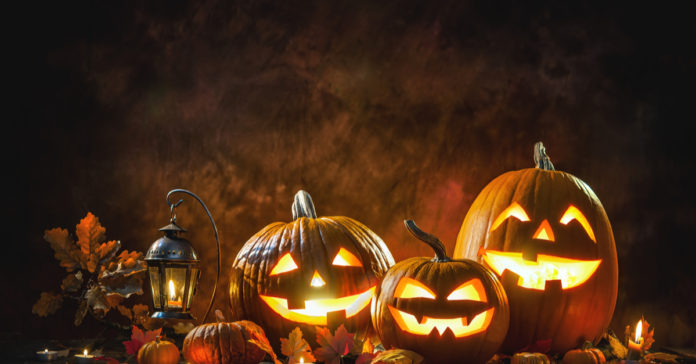According to media reports from the Middle East, Saudi Arabia is fully embracing the pagan festival of Halloween with pumpkins, lights and ghoulish decorations springing up around malls and homes in the kingdom.
The National newspaper reports that Fahad Alzowaid, a store manager in Riyadh, said he was enjoying seeing the happiness the holiday brought to people. “Everyone is buying make up, costumes and props to celebrate it,” he said.
Malls around the kingdom are selling Halloween-inspired costumes and decorations, while bakeries and supermarkets are capitalising on the pumpkin season and are offering items for those celebrating Halloween.
This year people can attend public Halloween events with their families, including Horror Adventures at Riyadh Season’s Winter Wonderland, which has a haunted house, a scary maze and games. In the capital, people can also drive up to the Tuwaiq Palace in Riyadh for trick-or-treating.
Halloween was never openly celebrated in Saudi Arabia until Crown Prince Mohammed bin Salman’s Vision 2030 was announced, which paved the way for non-Islamic religious and secular festivals to be celebrated.
Halloween is already celebrated in other countries in the Gulf such as the United Arab Emirates.
But Muslim lecturer Shaikh Tauqir Ishaq told 5Pillars: “I’m not sure why our Muslims in the Gulf need to follow historical, pagan rituals in order to ‘enjoy’ one’s life. This maybe shows that they are deprived in their practice of Islam or in their understanding. We can emphasise our own rich and diverse cultures and Islamic traditions and enjoy within our communities and have huge ‘fun’, rather than adopt practices requiring us to dress up as vampires and devils. Others should follow our beautiful faith rather than we follow them. Our beloved Prophet (ﷺ) warned us not to imitate a people – specifically in pagan rituals.”
Subscribe to our newsletter and stay updated on the latest news and updates from around the Muslim world!
Halloween is celebrated each year on October 31. The tradition originated with the ancient Celtic festival of Samhain, when people would light bonfires and wear costumes to ward off ghosts.
In the eighth century, Pope Gregory III designated November 1 as a time to honour all saints. Over time, Halloween evolved into a day of activities like trick-or-treating, carving jack-o-lanterns, festive gatherings, donning costumes and eating treats.






















